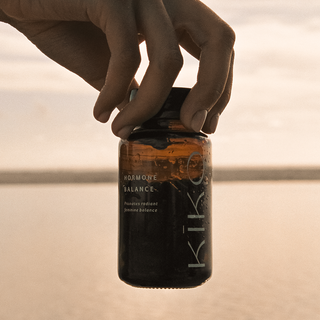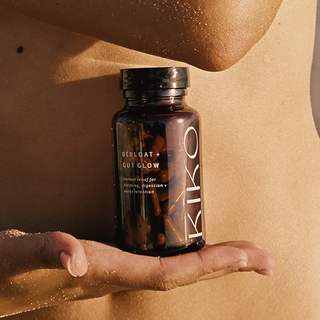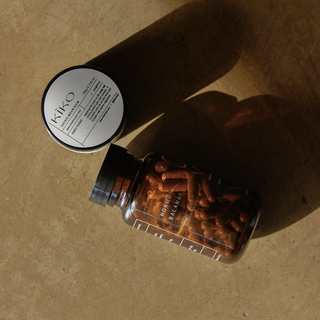
Menopause marks a significant transition in a woman’s life, typically occurring between the ages of 45 and 55. During this phase, many women experience hormonal changes that impact not only their reproductive health but also their skin. If you're going through menopause, you may notice various skin changes such as dryness, thinning, sagging, or increased sensitivity. Understanding these changes and knowing how to care for your skin during menopause is essential to maintaining a healthy, glowing complexion.
In this blog post, we’ll explore the common skin changes during menopause and provide effective skincare tips to help you adapt your routine to this new phase of life.
Common Skin Changes During Menopause
Dryness and Dehydration
One of the most common skin changes during menopause is dryness. This occurs because estrogen, the hormone that helps keep the skin hydrated, decreases significantly during menopause. As estrogen levels drop, so does the skin’s ability to retain moisture, resulting in dryness, flakiness, and a dull appearance.
Thinning Skin
Menopausal skin often becomes thinner and more fragile. The reduced estrogen levels cause a decrease in collagen production, a protein that provides structure and strength to the skin. With less collagen, the skin loses its elasticity and can tear or bruise more easily.
Wrinkles and Fine Lines
As collagen levels decline, wrinkles and fine lines become more noticeable. The skin’s ability to repair itself also diminishes, which makes signs of ageing like crow’s feet, smile lines, and sagging more pronounced during and after menopause.
Increased Sensitivity
Menopausal skin is often more sensitive due to hormonal fluctuations. You may find that your skin reacts more strongly to skincare products or environmental factors, leading to irritation, redness, or inflammation.
Age Spots and Hyperpigmentation
Another common change is the appearance of age spots, also known as liver spots, and hyperpigmentation. As the skin ages, its natural defenses against UV damage weaken, making it more prone to dark spots and uneven skin tone.
Acne
Hormonal imbalances during menopause can sometimes cause a resurgence of acne, similar to what many women experience during puberty. Lower estrogen and higher androgen levels can lead to increased oil production, clogging pores and causing breakouts.
How to Care for Your Skin During Menopause
While these changes may seem overwhelming, there are many ways to care for your skin as you age. By adjusting your skincare routine and lifestyle habits, you can keep your skin healthy and glowing throughout menopause and beyond. Here are some effective strategies:
Hydrate and Moisturise
Since dryness is a major issue during menopause, it’s essential to keep your skin hydrated. Use a gentle, hydrating cleanser that won’t strip your skin of its natural oils, and follow up with a rich moisturiser containing ingredients like hyaluronic acid, glycerin, or ceramides. These ingredients help attract and retain moisture, leaving your skin feeling soft and supple.
Additionally, consider using a humidifier in your home, especially during the colder months, to add moisture to the air and prevent your skin from drying out further.
Incorporate Collagen-Boosting Ingredients
To combat thinning skin and wrinkles, focus on products that promote collagen production. Look for serums and creams that contain retinoids (vitamin A derivatives), peptides, or antioxidants like vitamin C. These ingredients stimulate collagen synthesis, helping to firm the skin and reduce the appearance of fine lines and wrinkles.
Protect Your Skin From the Sun
Menopausal skin is more vulnerable to UV damage, making it crucial to protect yourself from the sun’s harmful rays. Always wear a broad-spectrum sunscreen with at least SPF 30, even on cloudy days. Sun protection not only helps prevent age spots and hyperpigmentation but also slows down the breakdown of collagen, keeping your skin firmer for longer.
Don’t forget to reapply sunscreen every two hours if you’re outdoors and to wear protective clothing, hats, and sunglasses for extra coverage.
Use Gentle Skincare Products
As your skin becomes more sensitive during menopause, it’s important to avoid harsh ingredients like alcohol, fragrances, and sulfates. Opt for gentle, fragrance-free products that soothe and nourish the skin rather than irritate it. Look for calming ingredients like chamomile, aloe vera, and niacinamide (vitamin B3), which help reduce redness and inflammation.
Exfoliate Regularly (But Gently)
Exfoliating your skin helps remove dead skin cells and promotes cell turnover, which can improve the texture and radiance of your skin. However, menopausal skin can be more delicate, so it’s essential to choose a mild exfoliant. Opt for chemical exfoliants like alpha hydroxy acids (AHAs) or beta hydroxy acids (BHAs) instead of physical scrubs, as these are gentler on the skin.
Aim to exfoliate once or twice a week to keep your skin smooth and glowing without causing irritation.
Maintain a Healthy Diet
What you put into your body can significantly impact your skin’s health. Eating a balanced diet rich in antioxidants, healthy fats, and vitamins can help improve your skin’s elasticity and hydration. Incorporate foods like salmon, avocados, nuts, and leafy greens into your meals to nourish your skin from the inside out.
Drinking plenty of water throughout the day is also crucial to keep your skin hydrated and flush out toxins.
Consider Supplementation
During menopause, supplementation can play a vital role in supporting skin health and overall hormonal wellbeing. Key balancing ingredients include ashwagandha, magnesium citrate, red raspberry leaf, maca, chasteberry, and more.
Did You Know?
Kiko Vitals’ Menopause Balance has been specially formulated to bring your body back into balance during this transitional phase of life.

Conclusion
Menopause may bring a variety of skin changes, but with the right care and attention, you can maintain healthy, radiant skin as you age. By hydrating, protecting your skin from the sun, and incorporating balancing ingredients from nature, you can address common issues like dryness, thinning, and wrinkles. And don’t forget the power of a balanced diet and a consistent skincare routine to keep your skin looking its best during this transformative phase of life.
Taking care of your skin during menopause is an act of self-care that can help you embrace this new chapter with confidence and grace.



